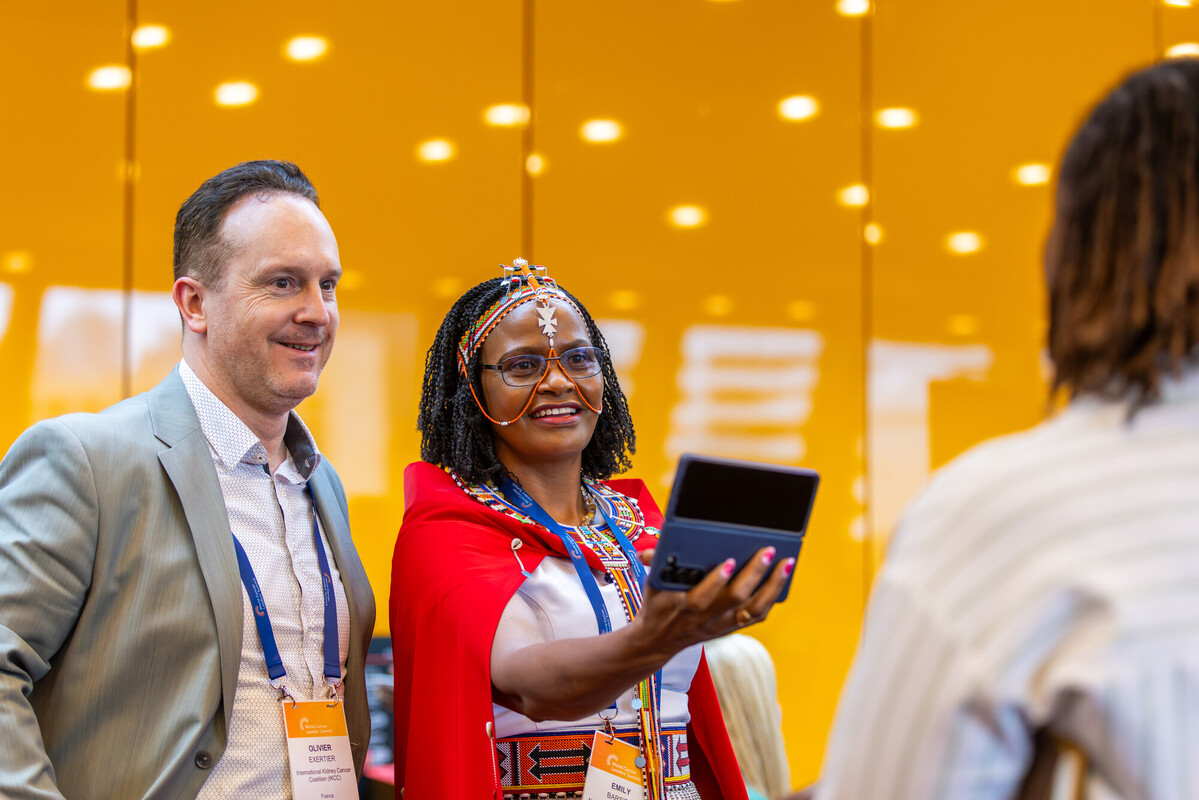 NCI-K Strategy, Partnerships and Resource Mobilization Director Emily Baristo engages delegates in Melbourne, Australia last Friday
NCI-K Strategy, Partnerships and Resource Mobilization Director Emily Baristo engages delegates in Melbourne, Australia last Friday
Kenya has been selected to host the 2027 World Cancer Leaders’ Summit in Nairobi’s Kenyatta International Conference Centre (KICC).
Nairobi will see global leaders gather to discuss progress, ideas translate into new commitments, and commitments turn into measurable change.
The sessions by the Union for International Cancer Control (UICC) will also seek the change that will reach the most remote villages, the busiest cities, and the most underserved populations.
More than 400 delegates from 55 countries attended UICC’s World Cancer Leaders’ Summit in Melbourne (18–20 November) to address global gaps in cancer control, where the decision was made.
Kenya has welcomed the news, saying the country is committed to hosting a Summit that will not only convene world leaders, but will catalyse action, inspire and strengthen global collaborations in the fight against cancer.
“It is a profound honour and privilege to stand before you today on behalf of the Government of the Republic of Kenya as we officially receive the hosting rights for the 2027 World Cancer Leaders’ Summit,” National Cancer Institute Strategy, Partnerships and Resource Mobilization Director Emily Barsito said in Melbourne Australia, on Friday evening.
She added; “We are especially honoured because Kenya is receiving this opportunity after a highly competitive global bidding process. The confidence that UICC has placed in our nation affirms Kenya’s growing leadership in global health, and our unwavering commitment to reducing the burden of cancer.”
In her acceptance speech, Ms. Baristo who represented NCI CEO Dr. Elias Melly, said cancer continues to impose an enormous burden on all our nations; rich and poor, urban and rural, young and old.
“The challenges are immense: rising incidence; late diagnosis, which is not just data but lives; disparities in access, financial toxicity, and the need for stronger health systems. But today, gathered here as leaders, we reaffirm that the solutions lie not in isolation, but in solidarity.”
The NCI director said Kenya has expanded partnerships, built local capacity, and embraced innovation, from digital health to community-led models of care yet still recognise that progress is interconnected with the work of all nations.
“Global unity against cancer is especially meaningful for Kenya. In recent years, we have invested significantly in strengthening cancer prevention, screening, early detection, diagnosis, treatment, palliative care, survivorship, and research.”
During the summit, the World Cancer Declaration 2025-2035 was launched, which introduces a “5×5×5 by 2035” framework: five global targets, five national action domains, and five core principles to guide countries in advancing equitable, evidence-based cancer control.
Developed through extensive consultation with UICC’s global membership, the World Cancer Declaration 2025-2035 sets out a practical, adaptable framework to guide national action and international collaboration over the next decade.
It was presented during a dedicated session by UICC President Ulrika Årehed Kågström, at the World Cancer Leaders' Summit taking place in Melbourne.
It seeks among others, a 25% reduction in global cancer mortality through strengthened prevention, early detection, and equitable access to treatment and palliative care.
30% reduction in exposure to major cancer risk factors, including tobacco, alcohol, air pollution, and infectious agents such as HPV and Hepatitis B.
60% of cancers diagnosed at an early stage, focusing on cancers with established screening and early detection strategies.
80% of cancer care facilities equipped with essential medicines, diagnostics and technologies, ensuring safe, effective and affordable treatment.
50% of countries integrate essential cancer services into Universal Health Coverage (UHC) packages, to reduce financial hardship and improve access.













![[PHOTOS] Three dead, 15 injured in Mombasa Rd crash](/_next/image?url=https%3A%2F%2Fcdn.radioafrica.digital%2Fimage%2F2025%2F11%2Fa5ff4cf9-c4a2-4fd2-b64c-6cabbbf63010.jpeg&w=3840&q=100)



